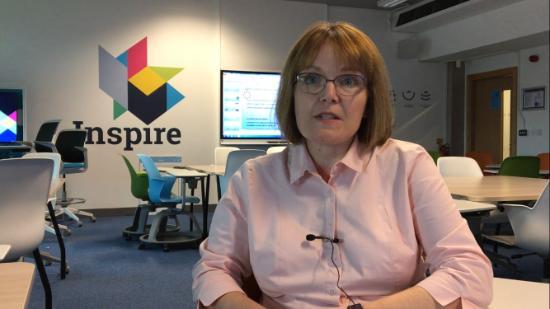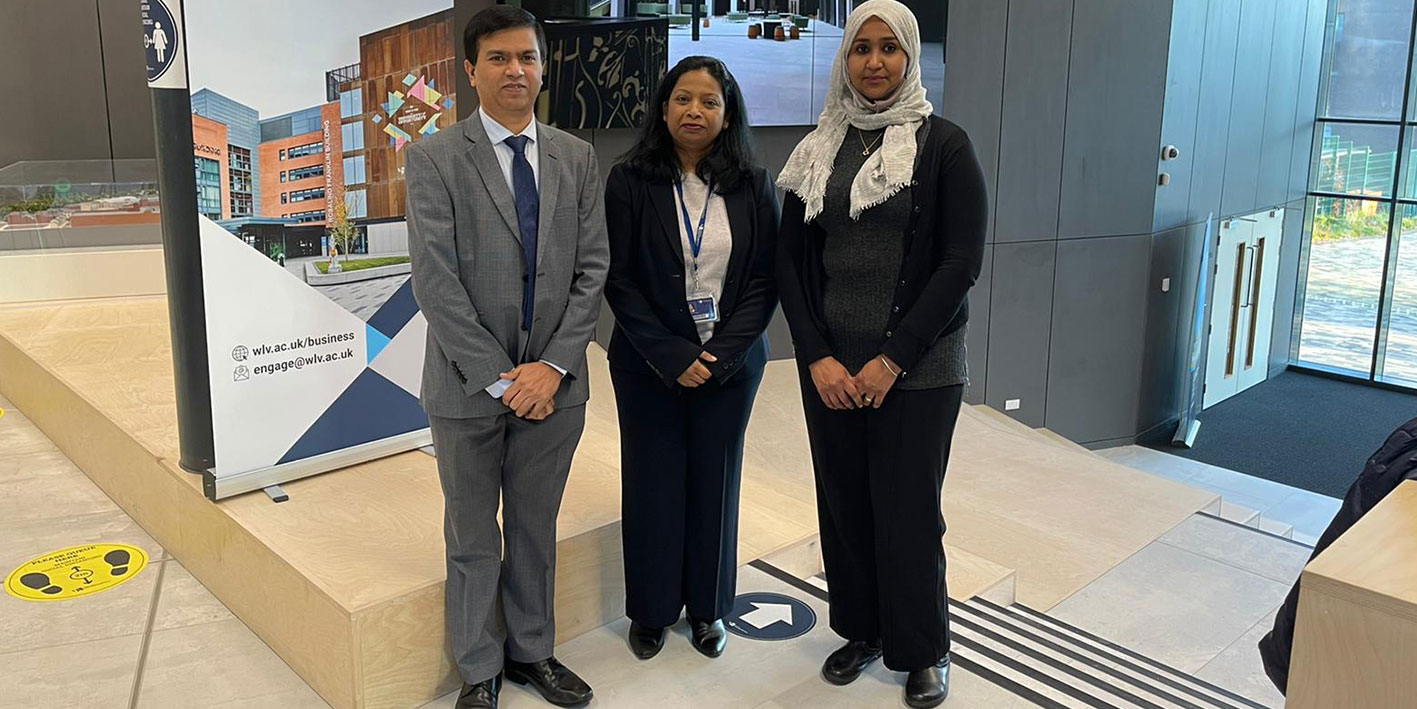
New report highlights why adapting learning spaces matters for innovative teaching and learning
Practical advice for schools on how to adapt learning spaces to support the innovative use of technology has been published in a new report by a leading University of Wolverhampton expert.
Adapting learning spaces is set to become an increasingly important issue for policy makers and school leaders. For this reason, European Schoolnet’s Interactive Classroom Working Group has just published Guidelines on Exploring and Adapting Learning Spaces in Schools.
Diana Bannister MBE, from the University of Wolverhampton’s Institute of Education, is the author of the publication.

She explains: "These guidelines and case studies from across Europe provide school leaders and teachers with the timely opportunity to consider how learning spaces, technologies and pedagogical approaches can be synthesized in the school environment to meet the needs of the learner in today's society."
The report provides practical advice and support to schools on how to develop and adapt learning spaces to facilitate the innovative use of ICT and collaborative approaches to teaching and learning. It aims to inspire school leaders and teachers to rethink their current classroom practice, and demonstrate how even small changes to existing learning spaces can significantly improve students’ active learning.
A key finding is that the situation is varied across Europe, with some countries being more advanced in addressing the need to develop more flexible learning spaces, while others are yet to recognise it as a policy priority.
Commenting on the new publication, Marc Durando, Executive Director of European Schoolnet says: “We are delighted to be able share this gathered expertise on the development of learning spaces in schools with all our stakeholders in Europe and beyond.’’
The publication has been developed in collaboration with European Schoolnet’s member Ministries of Education in Austria, the Czech Republic, Estonia, Ireland, Italy, Norway, Portugal and Switzerland. It is the result of work with policy makers, advisers, school leaders and teachers, and features case studies from across these eight countries.
European Schoolnet’s Future Classroom Lab is featured in the publication as an important example of a learning space designed to introduce different stakeholders to new teaching and learning approaches involving the innovative use of ICT. European Schoolnet’s Future Classroom Lab, just like the many learning labs it has inspired across the globe, challenges educators to rethink their current pedagogical practice within a flexible and reconfigurable space. This new publication has been supported by Steelcase and Microsoft, two major industry partners of European Schoolnet’s Future Classroom Lab, convinced of the need to transform learning spaces.
Sean Corcorran (General Manager, Steelcase Education) says: “In modern learning and teaching the student is an active participant in the construction of knowledge, challenging the traditional hierarchical teacher-student relationship, as well as the physical learning environment. Our studies have shown that the space can support the active engagement of students in the learning process, ultimately leading to increased student success. We are pleased to support European Schoolnet in helping to drive this change.”
Anthony Salcito (Vice President, Education Industry, Microsoft) adds: “Innovative learning spaces are so critical for students to learn in new ways, that engage, inspire and motivate them. Teachers and school leaders can think creatively about how to use their existing space, as well as plan new spaces using ideas and guidance from this publication. We are pleased to support European Schoolnet in sharing knowledge in Europe about this important issue.”
European Schoolnet’s Interactive Classroom Working Group has produced a range of useful outputs to help the education community effectively integrate various technologies into the classroom and embed personalised approaches to learning. In addition to these new guidelines on learning spaces in schools, the Working Group has recently published technical advice for school leaders and IT administrators to inform Bring Your Own Device practices for schools, along with a series of accompanying pocket guides.
Diana Bannister MBE is Assistant Director Pedagogic Partnerships and Head of Postgraduate Taught Provision within the University of Wolverhampton’s Institute of Education.
Further information
For more information please contact the Media Relations Office on 01902 32 2736 or 01902 518647.
About European Schoolnet’s Interactive Classroom Working Group
European Schoolnet’s Interactive Classroom Wokring Group (ICWG; http://fcl.eun.org/icwg) allows policy makers to explore common areas of concern, share experience, and address policy challenges related to the integration of a wide range of technologies in classrooms and their impact on teaching and learning. The ICWG is currently focusing on different approaches to personalising learning, and has produced various useful outputs on this theme for policy makers, school leaders, IT administrators and teachers. Austria, the Czech Republic, Estonia, Ireland, Italy, Norway, Portugal and Switzerland are members of the ICWG.
About European Schoolnet
European Schoolnet (www.europeanschoolnet.org) is the network of 34 European Ministries of Education, based in Brussels. As a not-for-profit organisation, we aim to bring innovation in teaching and learning to our key stakeholders: Ministries of Education, schools, teachers, researchers, and industry partners. European Schoolnet’s mission is to support relevant education stakeholders in Europe in the transformation of education processes for 21st century digitalized societies. Our remit is to identify and test promising innovative practices, share evidence about their impact, and support the mainstreaming of teaching and learning practices aligned with 21st century standards for the education of all students.
Date Issued: Friday, 22 December 2017
For more information please contact the Corporate Communications Team.


/prod01/wlvacuk/media/departments/digital-content-and-communications/images-2024/240328-Varsity-Line-Up-Resized.jpg)
/prod01/wlvacuk/media/departments/digital-content-and-communications/images-18-19/220325-Engineers_teach_thumbail.jpg)
/prod01/wlvacuk/media/departments/digital-content-and-communications/images-2024/240423-Additive-Research-Centre-Launched.jpg)
/prod01/wlvacuk/media/departments/digital-content-and-communications/images-2024/240320-Uzbekistan-Resized.jpg)
/prod01/wlvacuk/media/departments/digital-content-and-communications/images-2024/240229-The-Link-Resized.jpg)
/prod01/wlvacuk/media/departments/digital-content-and-communications/images-2024/240423-Arts-Connect-Resized.jpg)

